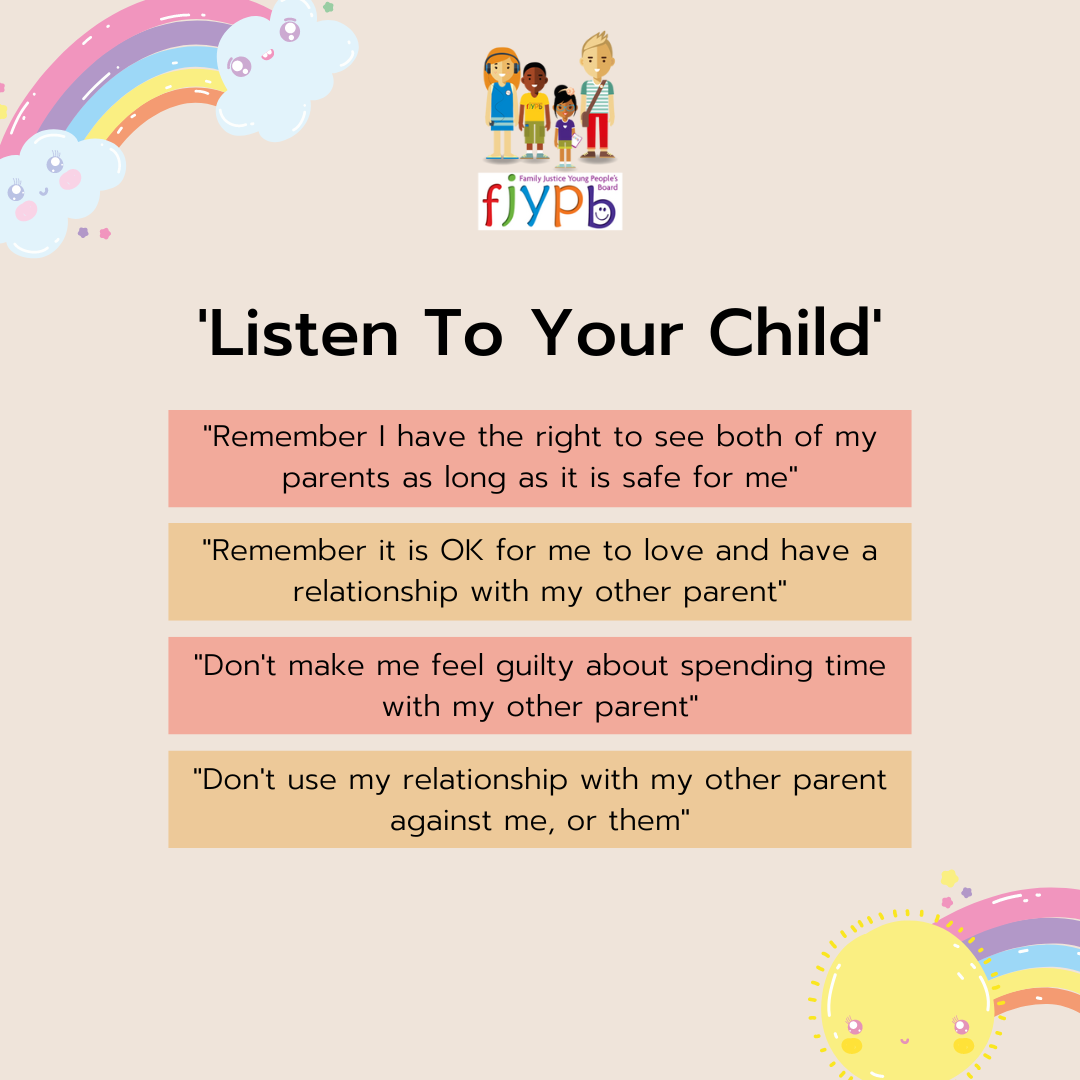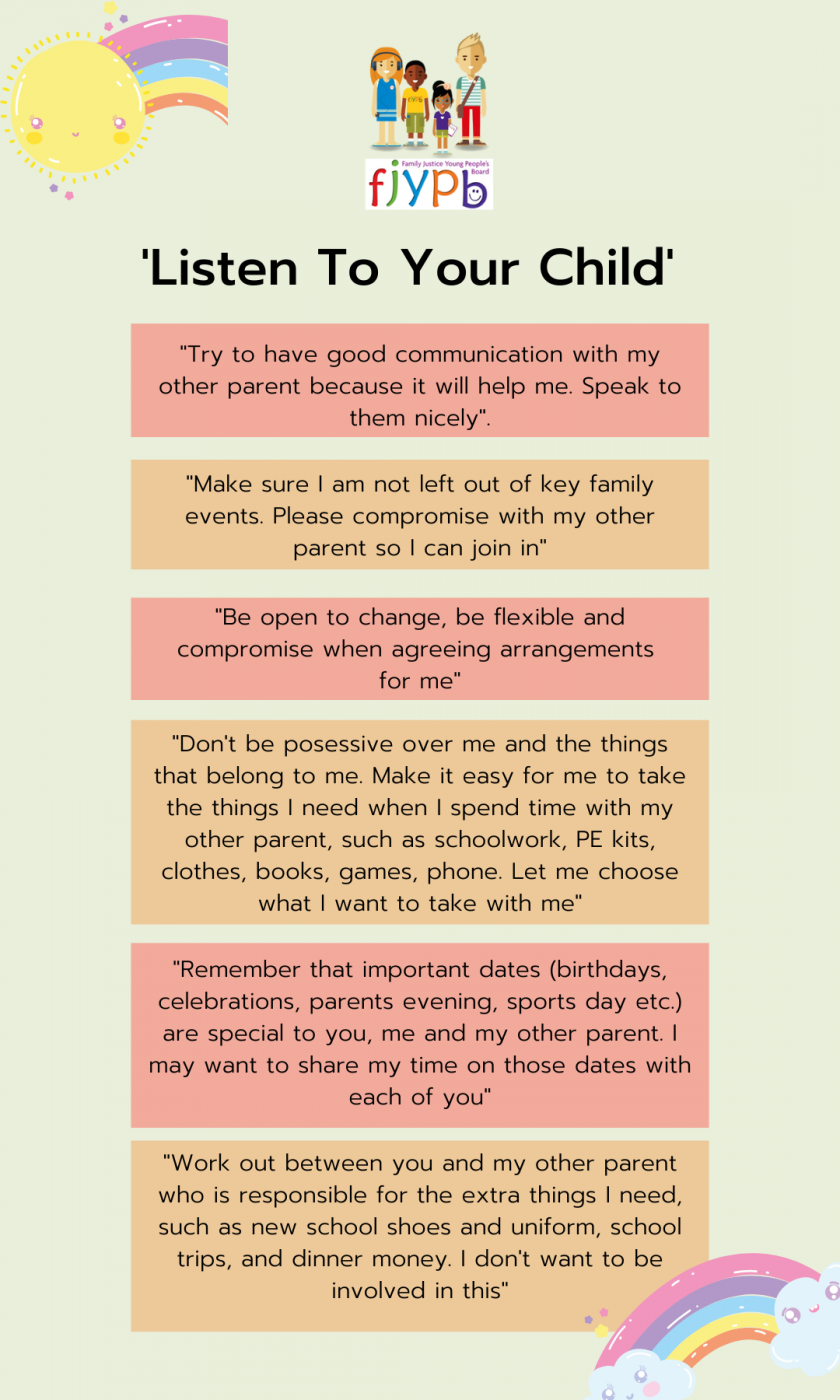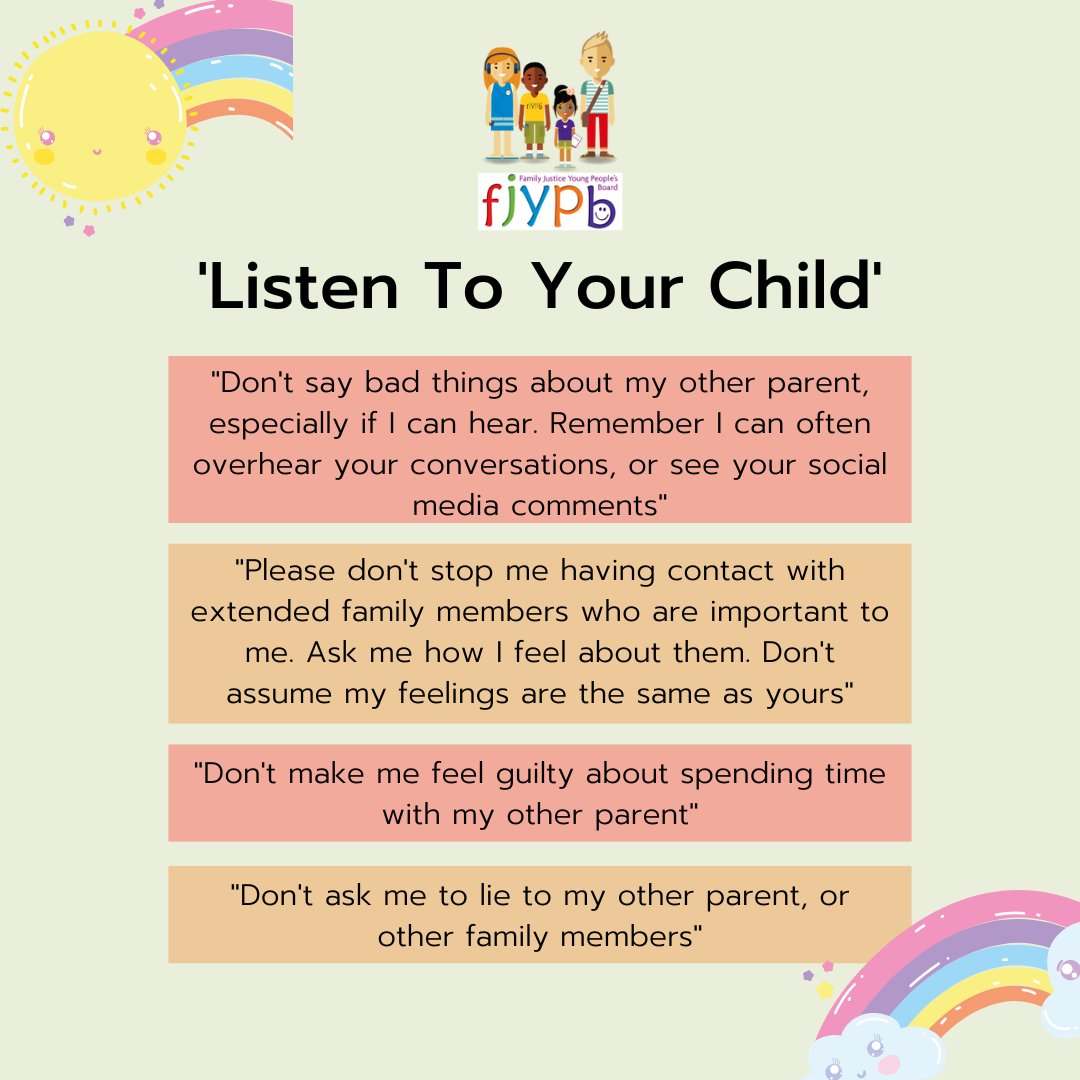Reducing The Impact of Divorce/Separation On Children
Divorce or separation is a difficult time for everyone involved, especially the children. It can be a confusing and traumatic experience for them, and it’s essential to do what you can to minimise its negative impact. Below we have put some advice together on how to reduce the impact of your divorce or separation on your children, as well as sharing some of the top tips children have voiced to the Family Justice Young People’s Board for their separated parents.
1. Try to Ensure Regular Connection with Both Parents

It is important for children to have regular connections with both parents if it is safe for them to do so. Having a relationship with both parents helps to provide them with a sense of security and stability, which can help them cope better with the changes in their family. Having positive and healthy relationships with both parents helps children to understand that both parents still love them and makes them feel supported, even when the parents are no longer living together. Seeing both parents can also help children to develop healthy relationships with others and help them manage their emotions.
Family mediation can help parents stay in touch with their child after separation or divorce because it increases their ability to communicate with their ex. Studies have found that parents who use family mediation, rather than court after divorce, have significantly better long-term relationships with their children.
2. Learn To Co-Parent Peacefully
We know divorce or separation can cause parental conflict as you may have different expectations for parenting arrangements or disagree on how to best care for your children, all of which can lead to increased tension and difficult conversations that can be emotionally draining for all involved.
Importantly the quality of interparental relationships, whether parents are together or separated, is increasingly recognised as a primary influence on children’s long-term mental health and future life chances. Research by EIF on behalf of DWP found that parents who engage in frequent, intense, and poorly resolved conflict put their children’s mental health and long-term life chances at risk.
Therefore, it is essential to try and reduce any parental conflict. Often just being aware of the impact your behaviour is having means you can start to moderate it. However, Family mediation will also help you find ways of being able to communicate with each other – as even though you’re not together you will still need to learn to communicate about things that affect your child including illnesses, school, special days etc. as well as the day-to-day stuff.
Family mediation helps to reduce parental conflict by providing a safe and neutral environment to discuss issues that you need to agree on. Through the help of a mediator, parents can learn communication strategies to effectively address their concerns and come to mutually beneficial solutions. Mediators can also provide impartial advice and help keep the conversation focused on finding a resolution. By teaching parents how to effectively manage conflict, family mediation can reduce the tension between parents and help create a healthier relationship to reduce the impact of your divorce or separation on your children. It also helps to maintain a positive relationship between both parents and children, allowing your children to have a sense of belonging and importance to both of their parents.

3.Talk And Listen To Your Child

Try to talk to your children together about your separation if you can, but try to avoid fault and blame about the reasons for the break up. They do not want to hear bad things said about the other parent.
Ensure they know it’s not their fault, and try to reassure them that things will be OK and acknowledge that they may feel many different emotions including sad, angry worried or even happy – but that’s all OK. Remind them they are loved by you both.
Try not to overwhelm them, keep it simple and make sure they know what is happening next. If one of you will be moving out, where they will be going, when they will see them and how they can get in touch.
Sometimes children may not want to talk, and books can provide comfort and clarity around the turmoil of family change and their parent’s divorce. Here we have pulled together a list of books that we think deal with the issues that children face and will help them understand what is going on.
It’s also important to let them have a voice. Let them know they can speak to either of you about how they are feeling. They may have concerns about the changes taking place in their family and worry about what lies ahead, so let them know you will listen to any of their concerns.
Research shows that above all else children want you, as their parents, to reassure them that life will go on and will be fine, that they are not to blame for your split, and that you are going to work together for them. But crucially they want to have a say. It is after all their life too.
Child Inclusive Mediation gives children a voice and an opportunity to share their worries and concerns whilst their parents are in mediation without the pressure of feeling responsible for decision-making or feeling that they have to take sides.
Your mediator will talk to you about how your children can contribute, and if you both agree, the mediator will arrange to meet with your children separately to the meetings between you and your ex-partner.
In cases where children have been allowed to share their views in mediation, parents have worked together to make sure their children’s wishes become a reality.
4. Remember To Look After Yourself
Divorce, separation or relationship breakdown is one of the most stressful events in a person’s life. Your children’s well-being will come first, but it’s vital for you to also look after yourself during your divorce. If you look after yourself then you will be in a better place to look after your children.
There are some things you should do to ensure your own well-being during this stressful time.
Talk About How You Are Feeling – Acknowledge how you are feeling and finding someone to talk to can help, maybe to a close friend or family member. Sharing your problems and how you are feeling with people you trust can be a big help. However, we know this isn’t always possible so there are also charities out there who can offer you support such as Gingerbread.
Take Care of Yourself – Try to eat healthily, and make time to exercise, even if it’s just a short walk with or without your children and try to get plenty of sleep.
Make Time To Unwind – Try to find time for the activities that you enjoy.
Family mediators can help you sort out your priorities and start the process of disentangling your once joint lives. You will be able to make arrangements for your children, your property and your finances, along with any other important issues you need to agree on.
The good news is that there are ways you can influence and lessen the impact of divorce or separation on your children, including all of the above and as well as considering family mediation instead of heading straight to court. Family mediation is quicker, less stressful and less expensive than going to court and it allows you to control your family’s future, instead of a judge. Studies have also found that parents who attend family mediation rather than court after divorce have significantly better long-term relationships with their children.
However you feel about your ex, you both remain parents to your child, regardless of your new situation. If you are to ensure your child grows up with a positive relationship with both of you, that means shaping a completely different relationship with your ex. One that some people compare to having a ‘business’ relationship, where the focus is your joint parenting responsibilities.
Image by ArtPhoto_studio on Freepik
